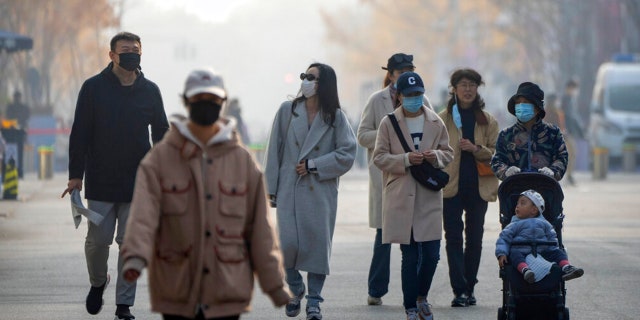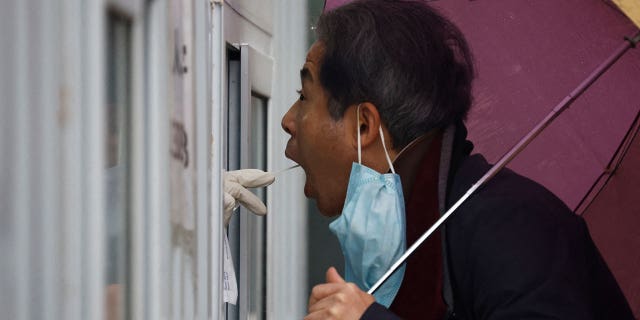China has confirmed its first COVID-19 death in nearly six months as the country grapples with yet another recent outbreak of infections.
On Sunday, China’s National Health Commission reported the death of an 87-year-old man from COVID-19 in Beijing. The last reported death was in Shanghai on May 26.

People wearing face masks walk along a pedestrian shopping street in Beijing’s Wangfujing shopping district on Saturday, Nov. 19, 2022.
(AP Photo/Mark Schiefelbein)
Sunday’s announcement brings the total number of COVID-19 deaths in China to 5,227. This according to official data released by the Communist Party in power. The real number is likely much higher, given the party’s long-standing reputation for manipulating statistics, a lack of external scrutiny and subjective criteria for determining causes of death.
With a population of 1.4 billion, China has officially reported just 286,197 cases since the virus was first detected in Wuhan in late 2019. Unlike other countries, the deaths of patients who exhibited symptoms of COVID -19 have often been attributed to underlying conditions such as diabetes or heart disease, obscuring the true number of virus deaths and almost certainly leading to an underreport.
DEM SEN WARNER SAYS ‘TRUMP WAS RIGHT’ ABOUT CHINA TIKTOK BANNING, WARNS PARENTS NOT TO LET KIDS PARTICIPATE IN APP
China on Sunday announced 24,215 new cases detected in the previous 24 hours, the vast majority of them asymptomatic.
While China has an overall vaccination rate of over 92% after receiving at least one dose, that number is significantly lower among the elderly, especially those over the age of 80, where it drops to just 65%. The commission did not provide details on the vaccination status of the last deceased.

A man takes his swab sample for the nucleic acid test for coronavirus disease at a testing booth, in Beijing, China on November 11, 2022.
(Reuters/Tingshu Wang)
Such vulnerability is considered one of the reasons China has mostly kept its borders closed and sticks to its strict “zero-COVID” policy that seeks to eliminate infections through lockdowns, quarantines, case tracing and mass testing. , despite the impact on normal life and the economy and the growing public anger towards the authorities.
Nearly three years into the pandemic, as the rest of the world has largely opened up and the impact on China’s economy increases, Beijing has mostly kept its borders closed and discouraged travel even within the country.
CLICK HERE TO GET THE FOX NEWS APP
In the capital Beijing, residents have been told not to travel between city neighborhoods and a large number of restaurants, shops, malls, office buildings and apartment buildings have been closed or cordoned off. Local and international schools in urban districts of the city of 21 million have been moved online.
The Associated Press contributed to this report.
